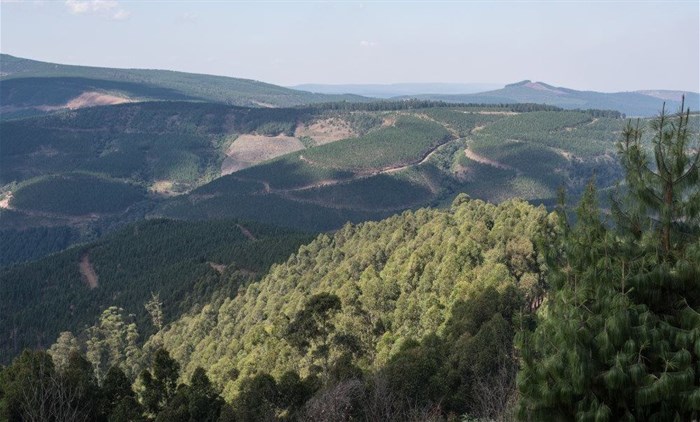
Top stories






LifestyleWhen to stop Googling and call the vet: Expert advice on pet allergies from dotsure.co.za
dotsure.co.za 2 days
More news



















Abraham Lincoln once said: Don't believe everything you read on the Internet.

I recently drew cash at an ATM and was greeted with an on-screen message: "If everyone said no to a receipt just for one month, we would save 45 trees." This is a classic example of greenwashing: making unsubstantiated or misleading claims about the environmental benefits of a product, service, technology or company practice.
These green claims often have no scientific basis to them – environmental myths have been published so often on the internet that they are deemed as facts.
Companies would prefer that you did not print the receipt because it saves them money.
You may have been encouraged "save the planet" by opting to receive bills or magazines electronically. Again, this is a cost-saving measure, and a practical one considering the state of our local postal system (and the associated carbon footprint); but instead companies "greenwash" it by saying you’re saving trees.
Personally, I prefer to receive bills online because it’s just more convenient (not greener) – and I’m the world’s worst filer – or the world’s best piler. But give me a printed magazine over a digi-mag with page-turning sound effects any day!
The most common form of greenwash is that little footer at the bottom of emails – "think before you print". If you need to print it, print it. And re-use it or recycle it once it’s been dealt with. If you’re going to be referring to something regularly, print it out and file it. Every time you open a document, your computer or device consumes energy – and in South Africa, we haven’t quite got the energy mix on the greener side just yet, that's if we have any at all.
Statements about saving trees by not printing are blatantly untrue. Firstly, the fibre for our paper and wood products is not sourced from indigenous forests or rainforests (we don’t have rainforests in South Africa).
Paper along with a myriad of wood-, paper- and tissue-based items are made from farmed trees, and recycled paper (which came from trees in the first place). Certain species of trees are planted in crops in South Africa specifically for the paper and wood industries, with a small percentage harvested for use each year which are then replanted within the same year. This is VERY different to deforestation which is the denuding of forested land for the likes of urban development (shopping mall, our homes, office parks) and agriculture.
Plantations are also not irrigated – they get their water from rain and groundwater and the sector even pays a "rain tax" – or streamflow reduction levy.
This makes trees – and anything made from them – a renewable resource. Have you ever been asked to eat less carrots or cabbage to save the vegetable farm? No, you are supporting farmers by eating their produce.

Stating that your company has saved X number of trees because you’ve implemented a paper recycling programme is also misguided. As trees are farmed for the purpose of making paper, they do not need to be saved.
Paper recycling is important for other reasons. It diverts a useful material from landfill which paper, packaging and tissue manufacturers re-use to make stuff you use every day.
The recycling of one tonne of “paper does not save 17 pine trees” but it will save around three cubic metres of landfill space and that is something to be proud of. And it keeps the carbon in the paper fibre (absorbed from the air by the tree) locked up for longer.
Paper recycling – from the collection and buy-back centres to the reprocessing and manufacturing into new products – also sustains local jobs.
Recycling reclaimers and waste pickers have helped to increase the collection of hard-to-get post-consumer waste, especially office paper, which is why keeping your paper recycling separate and dry is better for them – they get more for cleaner paper.
In 2018, 71.7% of recoverable paper – 1,285 million tonnes of documents, newspaper, magazines, cardboard boxes of countless kinds, and milk and juice cartons – was diverted from landfills for re-use.
Recycled printing and copy paper are not made in South Africa – this is imported, carrying an additional carbon footprint. Companies should be purchasing locally made copy paper. There are two well-known South African brands, both of which are certified by the Forest Stewardship Council (FSC®) as sustainably produced.
So consider the environment before you greenwash your marketing claims.
But make a noise about using locally produced paper, your successful recycling programme and that you are supporting informal collectors or small businesses by making their paper and other recyclables available to them.